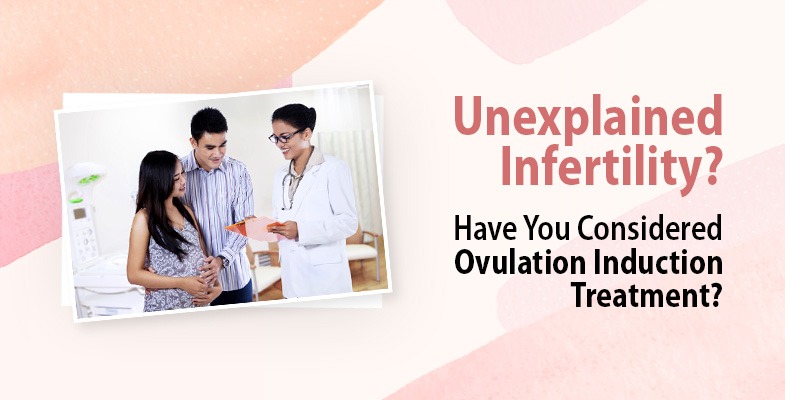
When a couple tries for a baby for more than a year and fails, and the doctor doesn’t find any obvious anomaly like blocked fallopian tubes, etc, the condition is referred to as “unexplained infertility”. However, there’s no reason to lose heart. Research reveals that countless such couples have gone on to have healthy babies either naturally or by taking recourse to fertility treatment.
What is ovulation induction treatment?
In unexplained infertility, the male and female partners are subjected to a comprehensive evaluation to arrive at the best treatment option. If the female partner is not ovulating regularly, the fertility expert might suggest ovulation induction treatment. This method uses hormonal therapy to stimulate development and release of eggs, or ovulation.
The drugs used in this therapy were designed to induce ovulation among women who failed to do so naturally, especially those with irregular periods, the target being to produce a healthy egg. Ovulation induction is also used to boost the count of eggs that mature in a single cycle so that chances of conception go up. In fact, more recent research has shown the benefits of using fertility medications to treat even ovulatory women with unexplained infertility, to induce multiple eggs to mature, thus boosting pregnancy rates.
What are the fertility drugs commonly used in ovulation induction?
Medications stimulate the release of hormones that drive egg production. The ones commonly used are:
# Clomiphene citrate: This is an oral medication that blocks estrogen receptors to induce ovulation. This is a fertility agent which induces superovulation or release of multiple eggs in a single cycle.
# Human menopausal gonadotropin (hMG): This medication comprises FSH or follicle stimulating hormone and LH or leutinizing hormone. It stimulates developments of eggs in women who don’t ovulate on their own or suffer from irregular ovulation. It is also used to boost egg count in ovulating women. This medication is available only in injectable form and can be used with both IUI (intrauterine insemination) and IVF (in-vitro fertilization).
# Follicle stimulating hormone: FSH medications, available only in injectable form, are used to stimulate development of numerous eggs during a single ovulation induction cycle. It is either used in isolation or in tandem with hMG to induce superovulation.
# Human chorionic gonadotropin (hCG):hCG, self-administered as an injection, coaxes final maturation of the eggs, thus triggering ovulation. It also helps prepare the uterus lining to facilitate implantation of the fertilized egg.
# Leuprolide & synthetic gonadotropin (FSH/LH) inhibitor:This drug, available in injectable form, stymies the secretion of LH and FSH in the brain, and is used to clear the decks for treatment with ovulation induction drugs. It boosts follicle recruitment by blocking the fetching of a dominant follicle for the subsequent menstrual cycle. It also guards against premature ovulation by blocking LH release.
Are there any risks that these medications carry?
Most women don’t show any significant side-effects from the oral or injectable medications. However, some of these symptoms are reported at times:
- Hot flashes
- Mood swings
- Bloating
- Tenderness in breast
- Abdominal pain
- Pelvic pressure
- Nausea
What is the generic success record of ovulation induction?
Success rate depends on the diagnosis and a clutch of other factors, not least the woman’s age. However, fertility experts concur on a generic success rate of about 20 to 25% pregnancy per cycle. This treatment is definitely recommended as ‘more than worth a shot’.


